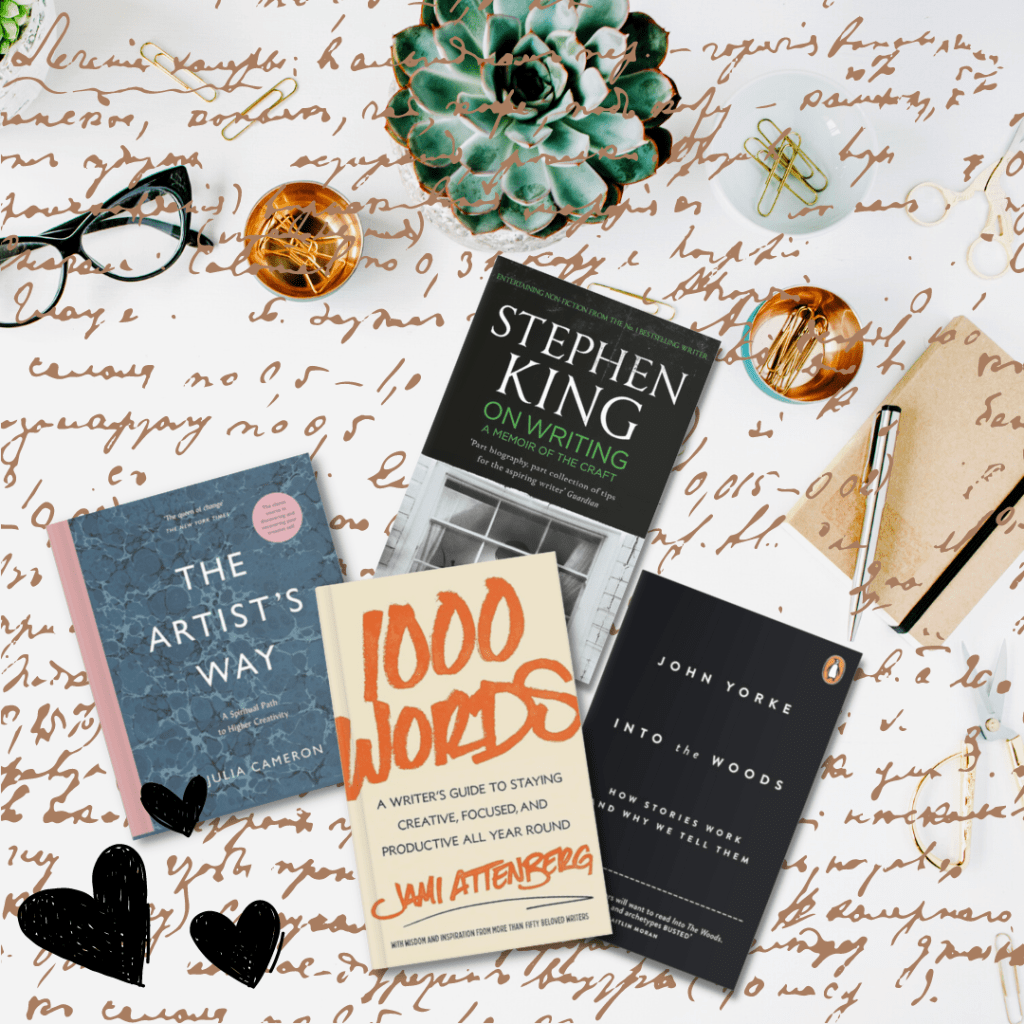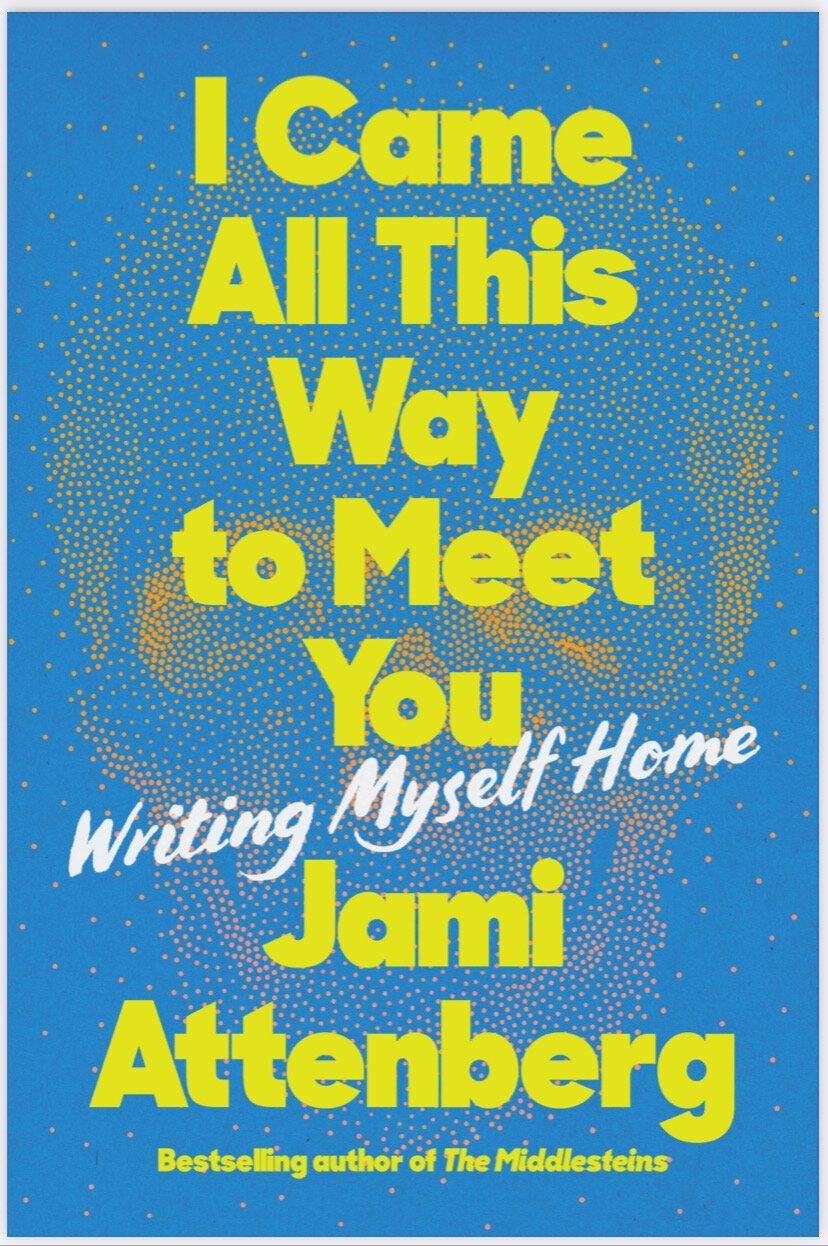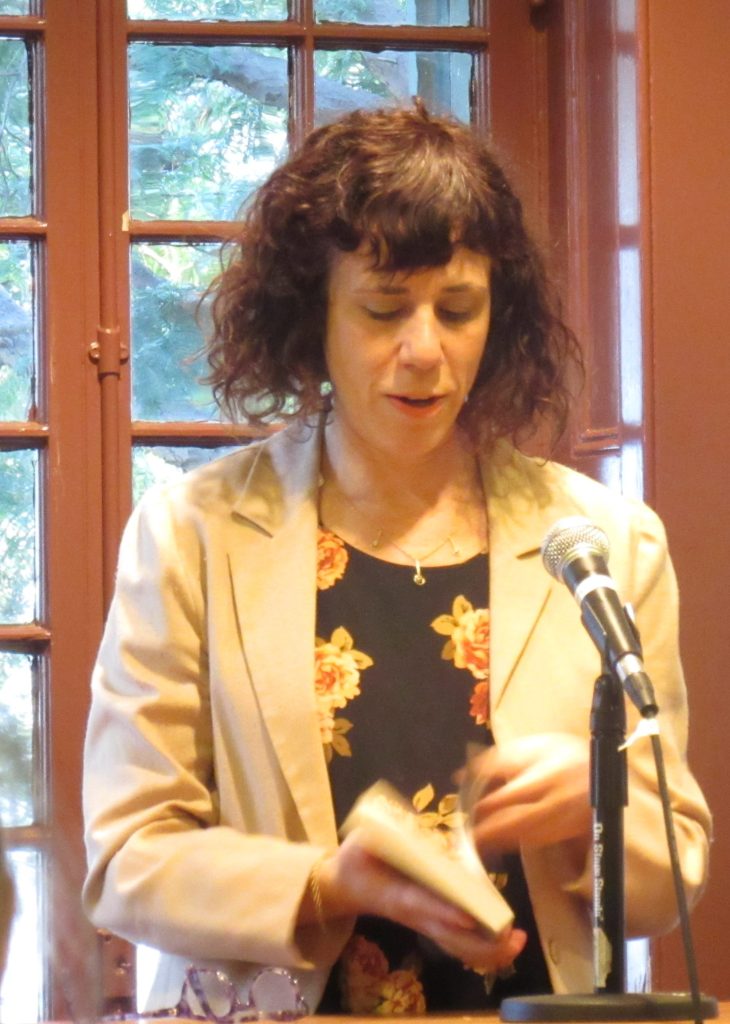We often read books about writing—it’s almost a favourite pastime amongst writers. After all, “The Artist’s Way” by Julia Cameron, one of the biggest bestsellers of all time, is still hailed by authors across the spectrum. Thus, it’s no surprise that 2024 introduces a new addition in the form of “1000 Words: A Writer’s Guide to Staying Creative, Focused, and Productive All Year Round” by Jami Attenberg, a New York Times bestselling novelist. However, this anthology distinguishes itself from previous works by focusing on the power of the act itself and of collective creativity that emerges from writing as a community.

“The most helpful action I took early in my writing life, hands down, was going to readings, and then, later, forcing myself to do open mics at readings. I met so many people that way, and even if we didn’t sustain relationships forever, it’s that kind of churn of new ideas and personalities that can help mutually drive writing.”
Jami Attenberg, ‘1000 Words‘
Who is Jami Attenberg?
MEET THE AUTHOR
Jami Attenberg
Attenberg is a New York Times bestselling author of seven books of fiction, including “The Middlesteins” and “All Grown Up,” and, most recently, a memoir, “I Came All This Way to Meet You: Writing Myself Home.”

She has written for the New York Times Magazine, the New Yorker, the Wall Street Journal, the Sunday Times (UK), and the Guardian. Her work has been published in sixteen languages. She lives in New Orleans.
What is 1000 words of summer?
The book itself was inspired by Attenberg’s annual online group writing accountability project, #1000WordsOfSummer, initiated in 2018, and a play on the words of the movie title “500 Days of Summer.” The New Orleans-based writer believes that there are hundreds more reasons to write than there are arguments not to. As a result, she has collated dozens of notable voices for the book, all established authors, who each share their motives for putting pen to paper. But more than anything, she demonstrates that writing is a way of connecting, healing, and expressing oneself.
She accentuates the power of setting achievable goals, such as writing 1,000 words a day, and illustrates the impact of communal support and accountability in fostering creativity and productivity. The initiative, #1000WordsOfSummer, started as a modest challenge between friends and blossomed into an artistic movement, underlining the potential within every writer to surpass their own expectations through consistency and mutual encouragement.
For Attenberg, she stresses that she writes because “it’s the thing I have to offer, the sharpest skill I have. I write to make people feel less alone. I write as an act of service,” while adding that it helped her with her mental health issues, due to living with anxiety. The project’s ethos, deeply rooted in the belief that “your story is worth telling,” underscores writing as an accessible and universal form of expression.
The “All Grown Up” author also sees writing as a grassroots movement, platforming voices that are often marginalised. With this in mind, Attenberg says: “You should write 1000 words for yourself because you can, and you should write 1000 words for those who cannot.”
Embracing diversity in the writing process
The encouragement to write without judgement or bias and to view every word written as a step toward completion is a powerful motivator. It reframes the often daunting task of writing into manageable, daily goals, making the process more approachable and less overwhelming. On top of this, the project’s communal aspect is particularly striking, highlighting the strength found in collective endeavours. It’s a reminder that while writing is often a solitary act, the journey need not be lonely.
As a result, the voices of Roxane Gay, Bryan Washington, Mira Jacob, Carmen Maria Machado, and many others are amplified as they discuss their reasons and methods behind writing. And it’s more than just about making a living for the storytellers in question – it is both living and breathing art.
Watch interview: Julia Cameron: The Artist’s Way author on AI and creative blocks
Susan Orlean’s passionate plea for writing with urgency and the necessity of feeling a “burning desire” to write showcases the emotional investment required for meaningful creative work. She says, “Readers can sense that, just as they can sense when someone is merely shuffling words around, without feeling fired up about it.”
At a time when AI is taking away work from writers, with almost 33% fewer freelance writing jobs, Attenberg’s initiative shows us the importance of crafting each syllable, every word, and turn of phrase meticulously and with purpose. Intentionality is everything.
“The daydreaming part of writing is so hard to define or explain, but it’s as important as anything else we do. And it’s also one of the most pleasurable parts.”
Jami Attenberg, ‘1000 Words‘
“The daydreaming part of writing is so hard to define or explain, but it’s as important as anything else we do,” Attenberg says. Our minds are travellers, wizards, psychiatrists, and scientists all at the same time. And for Christopher Gonzalez, writing offers “a second chance to live unfettered by insecurity or self-doubt,” while Attica Locke describes the process as “fun,” suggesting it as another form of play. What it shows us is that there isn’t a one-size-fits-all to writing – it is as individual as a fingerprint or a signature.
Overcoming challenges through community and creativity
Serendipitously, I recently joined the Professional Writing Academy on their Creativity for Writers course, which also honed into the idea that there are so many different ways to write. No, you do not have to journal if you don’t want to. It doesn’t have to be everyday. All prose is good prose. And so, if writing 1,000 words a day is not your cup of tea, then that’s okay too.
Reflecting on the words of Gay, author of “Difficult Women,” “as long as you put pen to paper or fingers to keyboard, you are a writer.” Her sentiment is that the only person who needs to believe in your work is you, which means that any unwarranted advice can largely be ignored. Deaf rights’ activist and novelist Sara Novic has similar feelings, saying “not all advice is good advice for you.”
“Did my Deaf ass have a complete freak-out about how I might never be able to write proper dialogue because Stephen King said writers should read their work aloud and listen to the cadence of their characters’ conversations? You know it!”
Sara Novic, ‘True Biz’ author featured in ‘1000 Words’
For one, Novic shows that some guidance is inaccessible for some, depending on our levels of privilege. Which is why Attenberg also issues a caveat with this book saying that “some of us have plenty of things preventing us from tending to our creative work: life, family, jobs, outstanding college loans that insistently need to be paid, and health issues, physical and mental alike.” And these are legitimate reasons that can get in the way.
Read: NaNoWriMo: the pros and cons of National Novel Writing Month
In the end, the book is a bit of a reassuring hug to people wanting to call themselves the ‘W’ word, and are too afraid. The approximately 50 wordsmiths showcased in this book empower us to take control of our own narratives, and this collective act of creation stands as a significant accomplishment in its own right.
In the aforementioned writing course, Plato’s Theory of Forms was discussed, as it posits that true perfection resides solely in the realm of thought, where each ideal exists as a singular, unparalleled entity known as a form.
This form represents the most impeccable embodiment of an idea. In the real world, everything is merely an imitation of these forms, and all imitations are inherently flawed. And our writing is a bit like this. We want it to be shiny and faultless, but in the end, we are all magpies stealing each other’s imperfections, and this is completely acceptable and mutual.
(Much like the author of this article borrowing phrases from the course instructor.)

[…] Read: Jami Attenberg: 1000 Words shows writing as a formidable collective act – review […]